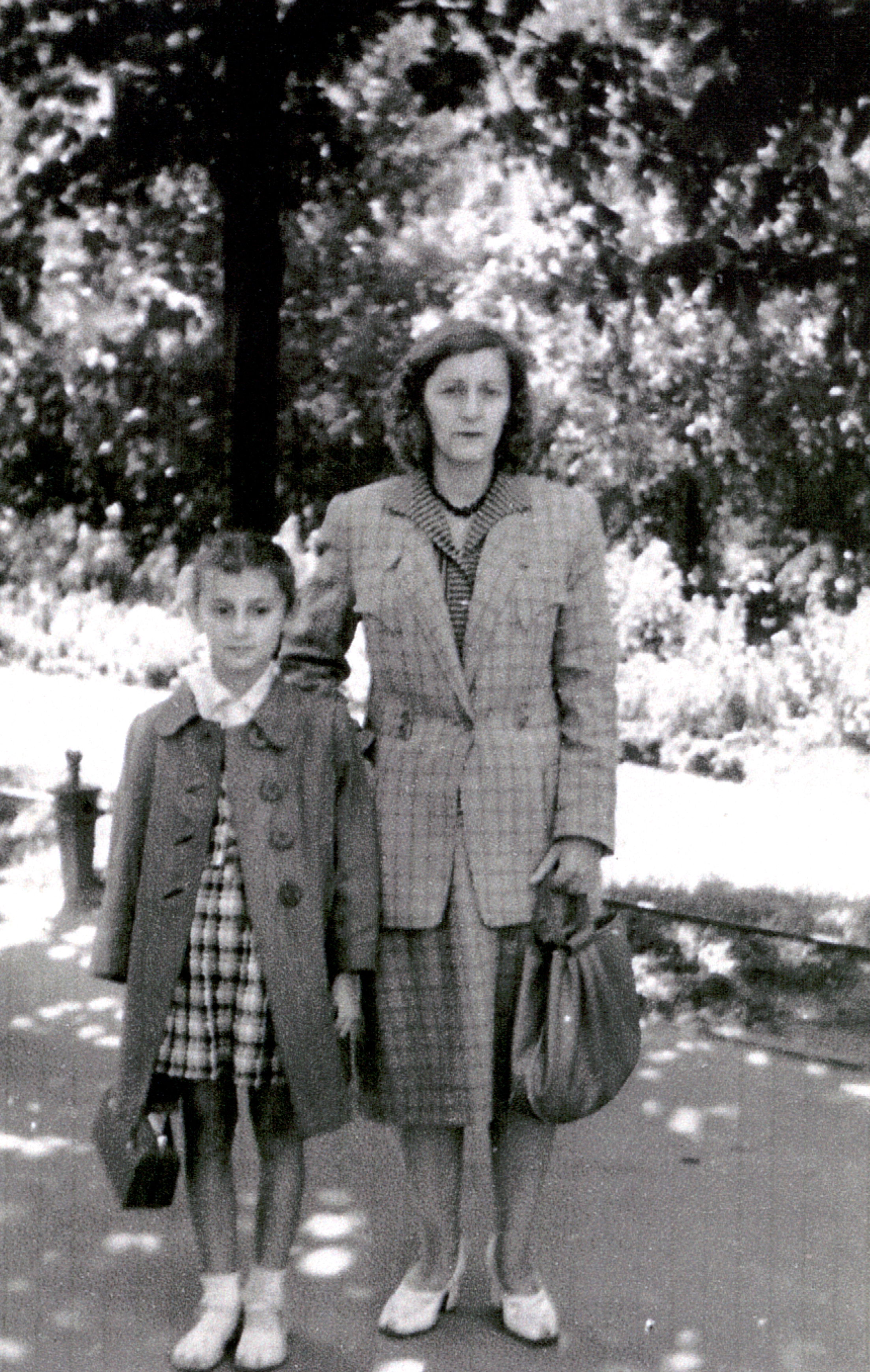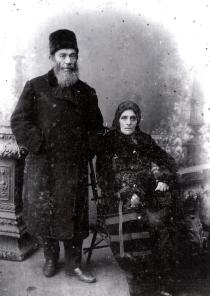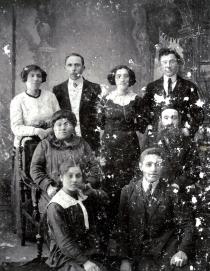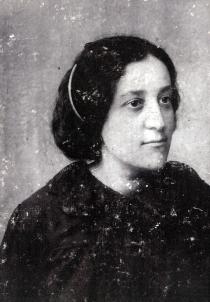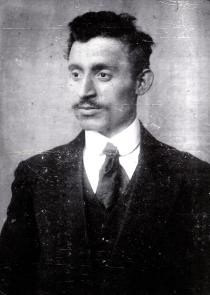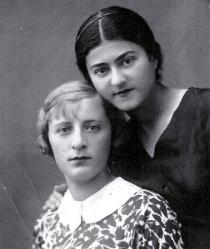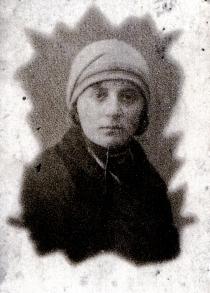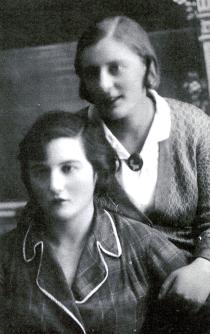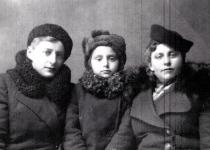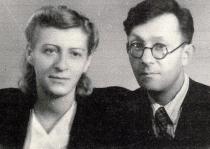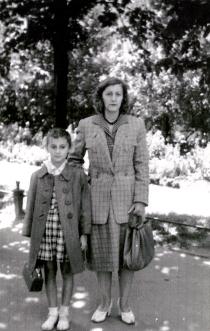My daughter Maya Gershenovich (on the left) and me. The photo was taken in Lvov in 1958.
After the war my husband and I moved to Lvov. Our daughter Maya was born in 1949. She went to kindergarten when she turned 3 years old, and I got a job as an accountant at the garment factory where my husband was working.
We lead a quiet life. My husband was a very decent, quiet, kind man. He loved our daughter dearly. He liked to speak Yiddish when there were no outsiders around. Anti-Semitism in Lvov was stronger than anywhere else. It always existed in this area regardless of the regime. It grew stronger after the war, because it was common knowledge that the majority of the communists who had established the Soviet power in Russia were Jews. People in Lvov hated the Soviet power and had much fear of it. They believed Jews to be supporters of the Soviet power. We were openly despised and we could often hear in the streets and in public transportation: 'Zhyds [kikes], go to Israel!' It was not advisable to show one's Jewish identity and we gave up our Jewish traditions. We had Jewish colleagues and we had friends among them, but we were not demonstrative about our friendships because we thought it might cause undesirable reactions.
My husband was wounded during the war and had a shell splinter in his chest. He died in 1957 when he was 52 years old. The splinter must have reached his heart. Maya lost her father when she was 9 years old.
I always told her to have Jewish friends, because they would always be supportive and never call one a 'zhyd'. It was one of the ways to feel more confident in a hostile environment. She studied at the Russian school. There were very few Jewish girls there. She had a friend named Maya Gleizer. They were very good friends. Maya Gleizer is in America now. She moved there 20 years ago. My daughter loves her Jewish people. She says Jews are the most intelligent people in the world. She studied at school very successfully. After graduating she tried to gain admission to the Polytechnic Institute in Lvov several times, but failed. It was next to impossible for a Jewish girl who came from a low-income family to enter an institution of higher education.
In 1966 Maya got a job as a computer operator. She held this job for 30 years. She went to work at age 16, because the state of our finances was grave. Later, after 30 years, the factory where she worked was closed and she lost her job. It was difficult for a Jew to find a job in Lvov. Once, she was told about a vacancy. She went to the human resources department to inquire. A woman there confirmed that there was a vacancy and told her to come by the following day with her passport. On the following day the woman opened her passport and saw that Maya was a Jew. She said 'You know, we have already employed someone'. My daughter lost all hope of finding a job. She was feeling hurt and offended. She felt as if she had been shrugged off.
She wasn't happy in her personal life either. Her husband was a Jew. But I don't want to talk about him. It is enough that she divorced him. She wouldn't have married a Russian man. There have never been any mixed marriages in our family anyway. If she wanted to marry a Russian man she would have had a number of options. There were quite a few Russian men that wanted to marry her. But she says that she is not young any more and that she doesn't need anybody.
